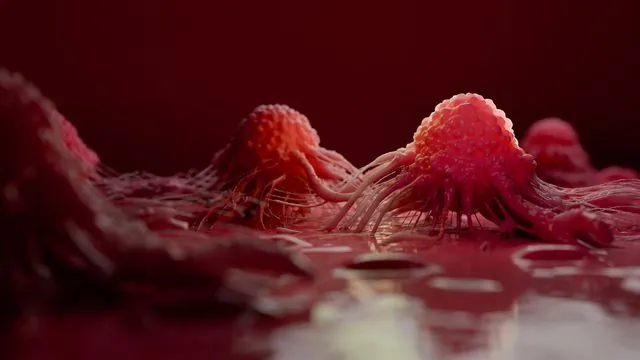
Revolutionary Research Reveals New Pathways to Combat Skin Cancer Resistance!
2024-09-24
Groundbreaking Discoveries by UCLA Scientists
Scientists from the Eli and Edythe Broad Center of Regenerative Medicine and Stem Cell Research at UCLA have made groundbreaking discoveries regarding the metabolic tactics that squamous cell skin cancers employ to resist treatment. This pioneering study sheds light on potential strategies that could halt cancer growth more effectively than current methods.
Urgent Need for Combination Therapies
Published in the prestigious journal *Science Advances*, the researchers emphasize the urgent need for combination therapies targeting multiple metabolic pathways. This innovative approach could not only revolutionize treatment for squamous cell skin cancer—which arises from cells on the skin's surface—but also enhance therapies for a wide variety of other cancers exhibiting similar metabolic characteristics.
Leadership and Research Insights
Led by Professor William Lowry, a respected figure in molecular, cell, and developmental biology, the research builds on findings from 2019 that challenged the long-held belief known as the Warburg effect, which suggested that cancer cells primarily relied on glucose for their energy needs. The new findings reveal that squamous cell cancers possess an impressive metabolic flexibility—if glucose is scarce, these cancer cells can switch to utilizing the amino acid glutamine as an energy source.
The Complexity of Cancer Metabolism
Our research demonstrates that focusing solely on one metabolic pathway fails to address the complex nature of cancer cells," said Lowry. "Cancer cells have access to multiple nutrients, which provides them avenues to flourish even when we attempt to limit their resources.
Investigating Metabolic Adaptability
The study's first author, Carlos Galván, investigated the metabolic adaptability of these cancer cells using mouse models. By genetically inhibiting the pathways that allow glutamine to fuel hair follicle stem cells—whose mutations can lead to squamous cell skin cancer—Galván observed that tumors were still able to thrive by simply switching to alternative nutrient sources.
A Game of Whack-A-Mole
It's truly like a game of whack-a-mole," Galván remarked. "When we block one pathway, the cancer cells adeptly find another way to sustain their growth.”
A 'Double Hammer' Strategy
Taking a bold approach, the researchers employed what they called a “double hammer” strategy, simultaneously blocking both glucose and glutamine pathways. Remarkably, this dual intervention was sufficient to halt tumor growth in experimental models.
Metabolic Resilience of Cancer Cells
Additionally, Galván discovered that the cancer cells' metabolic resilience arose not from a transcriptional response—as previously believed—but through the rapid redistribution of transporter proteins that facilitate nutrient uptake. This revelation points to the complexity of cancer cell metabolism and their ability to adapt in real-time, which poses a significant challenge for treatment.
Translating Findings to Clinical Practice
To translate their genetic findings into clinical practice, the team is currently working on identifying specific pharmacological inhibitors that could mimic the effects of genetic manipulation. They are also exploring the exciting prospects of developing topical treatments, which would allow for direct application to the skin, thus minimizing systemic side effects commonly associated with oral therapies.
Unique Opportunity for Treatment
The accessibility of skin tumors presents a unique opportunity for treatment," Galván noted. "If we can develop a gel or lotion that effectively penetrates the skin barrier and remains potent, it could revolutionize how we treat skin cancer.
Broader Implications Beyond Squamous Cell Skin Cancer
Given that glucose and glutamine are also utilized by various other cancers, the implications of this study extend well beyond just squamous cell skin cancer. The researchers are eager to adapt their findings to treat other skin cancers, including the aggressive melanoma.
Ongoing Research into Cancer Metabolism
Moreover, they continue to investigate the intricate protein interactions and regulatory processes that enable this metabolic flexibility, hoping to uncover the secrets behind how cancer cells adapt to nutritional stress.
Deciphering Cancer Cell Adaptability
If we can decipher how cancer cells sense and respond to these metabolic pressures, we can potentially undermine their adaptability and develop more effective therapies," said Lowry, who is not only a lead researcher but also holds roles in education and mentoring at UCLA Health’s Jonsson Comprehensive Cancer Center.
Experimental Drugs and Future Prospects
While the experimental drugs mentioned have been tested in preclinical settings, it’s important to note that they have yet to receive FDA approval for human use.
Conclusion: A Transformative Breakthrough?
Stay tuned as this research team forges ahead in their quest to outsmart cancer! The fight against skin cancer and other malignancies may be on the brink of a transformative breakthrough.




 Brasil (PT)
Brasil (PT)
 Canada (EN)
Canada (EN)
 Chile (ES)
Chile (ES)
 España (ES)
España (ES)
 France (FR)
France (FR)
 Hong Kong (EN)
Hong Kong (EN)
 Italia (IT)
Italia (IT)
 日本 (JA)
日本 (JA)
 Magyarország (HU)
Magyarország (HU)
 Norge (NO)
Norge (NO)
 Polska (PL)
Polska (PL)
 Schweiz (DE)
Schweiz (DE)
 Singapore (EN)
Singapore (EN)
 Sverige (SV)
Sverige (SV)
 Suomi (FI)
Suomi (FI)
 Türkiye (TR)
Türkiye (TR)